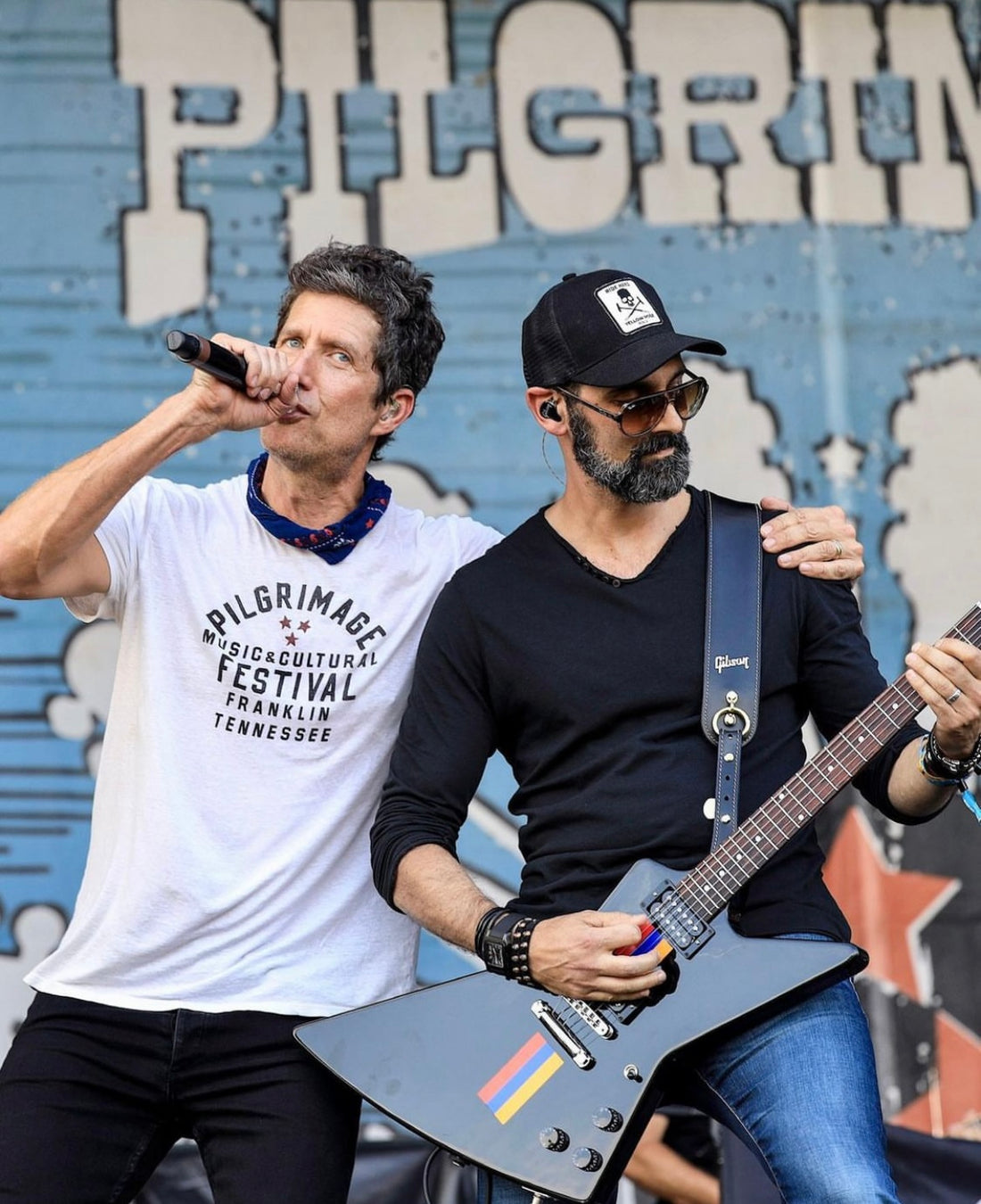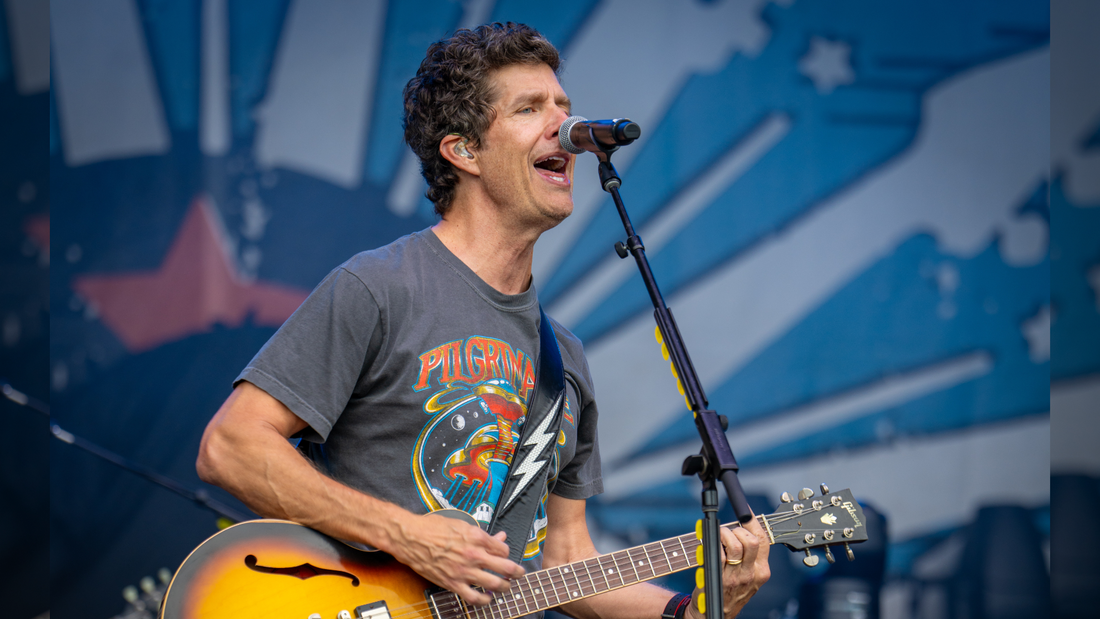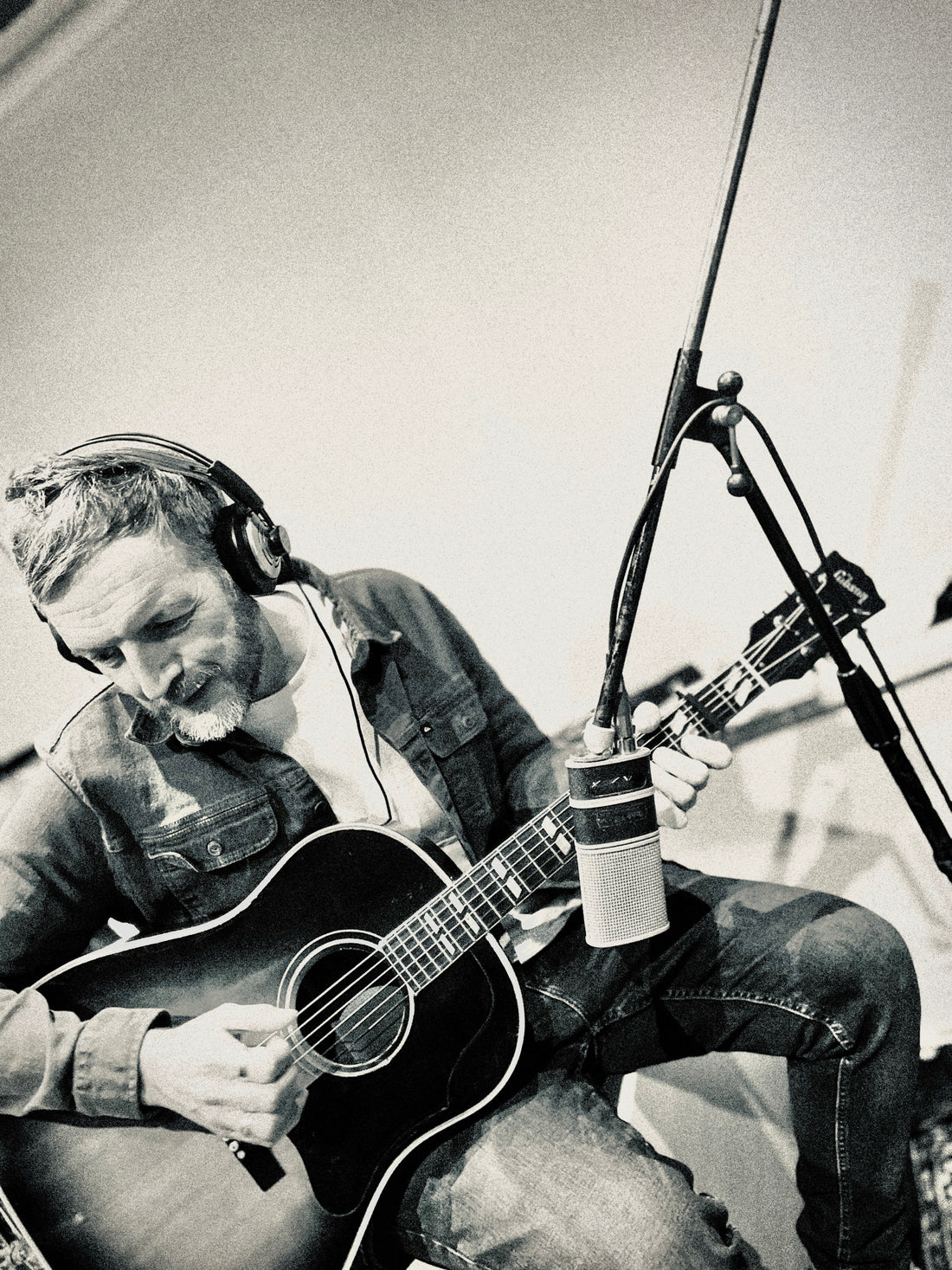Better Than Ezra frontman and festival co-founder Kevin Griffin looks back on 11 years of Pilgrimage and reveals how its eclectic spirit brings a little New Orleans to Tennessee. Plus, find out how Gibson fans can get 20% off festival tickets
Now in its 11th year, Pilgrimage Music & Cultural Festival is way beyond the average music festival experience. Small enough to feel intimate and curated, but substantial enough to tempt some of the music world’s leading lights to make the journey 18 miles south of Music City to Franklin, September 27-28 will see the beautiful setting of Harlinsdale Farm pay host to a stellar array of artists, including John Mayer, Kings of Leon, Sam Fender, and Father John Misty. We caught up with Pilgrimage co-founder Kevin Griffin—primarily known for being the frontman of alternative rock stalwarts Better Than Ezra—to find out more about the festival’s origin story.
Do you remember the specific moment when the idea of hosting a festival in Franklin first came about?
“It was the day after Thanksgiving, 2013. I had family in town and I’d overindulged the day before, so I needed some alone time. I took a run from my house. When I run, I usually go south from my house and run around the park, but this time I went north. After about a mile, I took a breather, and I found myself out in the middle of this farm called Harlinsdale. It’s a former Tennessee Walking Horse farm—it was actually the epicentre of the Tennessee Walking Horse world. And as I was catching my breath, I stood up and the sun literally came out from behind the clouds. It was an incredibly gorgeous day, and instantly I thought to myself, ‘This is the most beautiful setting for a festival I’ve ever seen.’
“Rolling hills, natural amphitheaters, these big mare barns that are on the historic register—the setting itself is a headliner. So I was like, ‘I’m going to do a festival here.’ It’s 18 miles from downtown Nashville, a mile and a half from I-65, and if you read Garden & Gun or different tastemaker magazines, Franklin is one of the coolest small cities in America. I ran back to the house and called a couple of buddies. I was like, ‘Hey, you know that thing we talk about over cocktails and dinner in New Orleans—I’ve found our setting.’”
What’s the significance of New Orleans in the Pilgrimage story?
“Me and my partners all grew up going to Jazz Fest in New Orleans, it’s one of the great American festivals, and it’s this amazing multi-genre festival that’s so location-specific. It’s a celebration of New Orleans and the Gulf Coast and the best music, the best food, the best artisans, the best deep-dive into culture. And in 2013, there weren’t really any other multi-genre festivals, at least in the States. So we started putting a festival together and doing it independently—not using Live Nation, not using AEG. I’ve been touring since the early 1990s and I’ve played most every festival. We kind of just cherry picked these freelance festival people to come and help us build this idea.
“We wanted to do a festival that was like, you went to Bonnaroo, you partied, you were in a tent… now, you still love great music and you love cool stuff, but maybe you’ve got some kids and you want a more refined music experience that’s not 80,000 people, it’s 20-25,000 people. And that was the idea of Pilgrimage. One thing we’ve found with the festival is that it can be cool and exciting and edgy—everything we want as music fans—but also you can have your kids with you! ‘Family friendly’ and compelling artist lineups are not mutually exclusive things. Going back to Jazz Fest, that’s what it’s all about. I could go to one stage and see David Byrne play, and on the next stage, it was Allen Toussaint and Sonny Rollins. And on another stage, Ed Sheeran’s playing.
“For Pilgrimage year one, in 2015, the first artist we booked was Dr. John. And then we had Willie Nelson. When you start a new festival, in the industry, they call it the meat. What is the meat that is going to attract all the other bands to believe? There’s a lot of festivals that try to get off the ground and it’s hard, it’s capital-intensive and it’s labour-intensive. But we had Cage the Elephant, Weezer, Neko Case, Band of Horses. Chris Stapleton was in the middle of the day and nobody knew who he was. I will not divulge what we paid him, but it was a lot less than what we paid him six years later! And then year two it was Beck, Hall & Oates, and Jason Isbell. Year three, we had Justin Timberlake come in as a limited partner and he performed, and there was Eddie Vedder. Then we were off to the races. We’ve had everyone from Foo Fighters to The Killers, Zach Bryan, The Lumineers. We’ve just had this amazing journey—through COVID, through a rain-out in 2018, somehow we’ve managed to keep doing this thing independently, and here we are about to celebrate year 11. I’m really excited.”
 Kevin Griffin and special guest, Gibson CEO Cesar Gueikian, on stage at Pilgrimage. Cesar's customized 80s Explorer prototype was auctioned in aid of the Armenia Fund.
Kevin Griffin and special guest, Gibson CEO Cesar Gueikian, on stage at Pilgrimage. Cesar's customized 80s Explorer prototype was auctioned in aid of the Armenia Fund.
Did the experience of playing at so many festivals over the years as an artist inform what you didn’t want to do at Pilgrimage, as much as what you did?
“The currency in this industry is word of mouth from artists, managers, production managers, and then up the food chain, so we wanted it to be super artist-first. When you are an artist, you want the guarantee you are getting paid, of course, but what keeps you coming back, what makes you tell your agent, ‘Hey, let’s do that again,’ is when you get there and you go into your trailer, and the trailer is designed to look like the cover of your last album. We’ve taken the time to have things that we know are important to you in the dressing room. And incredible food, and a great place to hang with other artists. And that’s what we did year one, purely from being an artist and saying, ‘What would I want? What’s the vibe I want to have?’ We’ve been able to step in when we knew what needed to happen, but also able to say, ‘Okay, I need someone with more experience to come in here,’ whether it’s a festival director or a talent booker, because you can’t afford a learning curve or to make a mistake.”
There must have been plenty of moments when you’ve thought back to that morning run in 2013 and felt proud of how far the festival has come.
“There have been so many of those moments where you just step back. I guess year one was the first one, just to be able to say, ‘Oh my God, we pulled this crazy thing off!’ Never mind we lost a lot of money! We had some rain, we had some hot temperatures, but at the end of the day, Willie Nelson was the last show on the Sunday night, and it was just this magic middle-Tennessee sunset, and it was like, ‘Ok, we did it. Will there ever be another one? We don’t know!’
“I think the first time I knew that we had something was when we had Justin Timberlake and we had almost 30,000 people out there, and all our peers from different festivals were there. I loved seeing The Killers; the week they played Ric Ocasek had just passed away, and they came out and did ‘My Best Friend’s Girl,’ with a big black and white photo of Ric Ocasek on the screens. That was really sweet. Zach Bryan—we caught Zach right at the peak of the insanity, and it was just packed. Then last year we had the Dave Matthews Band, Noah Kahan, and Hozier—and we also had the remnants of Hurricane Helene sitting right on top of us. The vibe, the gratitude that everybody had about us not cancelling and still doing the festival was moving—it really was cool.
“You go into it really naive, saying, ‘This is great!’ And in the back of your head, ‘We’re going to make a ton of money!’ You’re not going to make a ton of money. Some years we make money, some years we lose money. It’s kind of half and half, and the margins are not good. But we love what the festival does for our friends and family, for the city—it’s just great. We love music, we love live music, and that’s why we do it.”
When it comes to playing at Pilgrimage with Better Than Ezra, do you feel more relaxed because it’s your own festival in your own back yard, or is there more pressure because you are so invested in the event?
“I would say the latter, for sure! For the record, year one, I did not play. It was about the purity of the festival and the vision we had. I didn’t want it to come off as some vanity play. But after year one, everybody was like, ‘Dude, you’ve gotta play your own festival! You’re a fool not to!’ So we did. And honestly, every year I’m like, ‘Guys, if you want us to play, we will.’ And my friends and I are close enough for them to be able to say, ‘Why don’t you sit this one out this year?’ They would tell me! But it’s awesome, and it’s a packed crowd, and every year we have surprise guest artists who show up with us and make it special. We love Cesar getting onstage and we love raising money for charities. We have some special guests coming up to play with us and Cesar this year that are going to be fun. I will just say that it’s going to be a deep dive into the 1990s!
“But honestly? My favorite part of the festival is after I’ve played, because beforehand, you are in show mode, where you are thinking about the show, and I don’t want to talk too much because I don’t want to mess my voice up. But I think there’s a little more pressure because I’m one of the founders of the festival, and I want it to be great. It’s self-imposed pressure!”











































